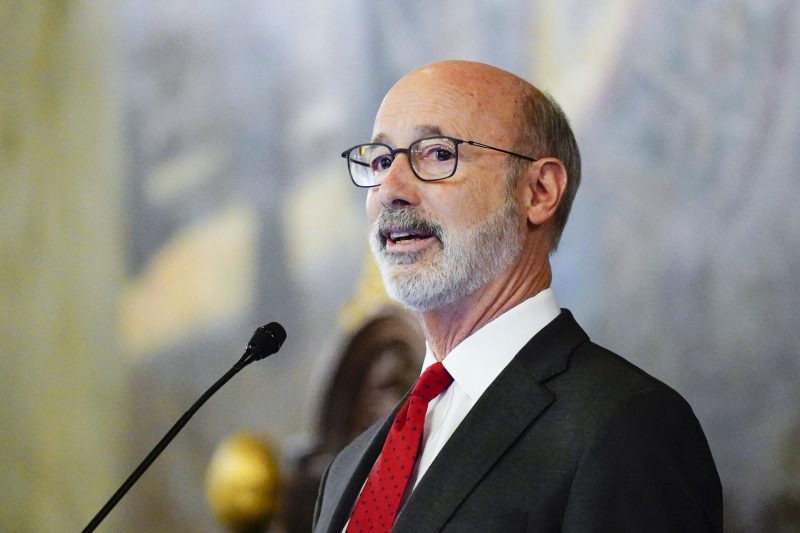By Victor Skinner | The Center Square contributor
(The Center Square) – Pennsylvania Gov. Tom Wolf laid out his priorities for the next state budget Tuesday with a focus on increased investments in education funding, job training, small business assistance, clean energy, infrastructure and health care.
In his final budget address as governor, Wolf reflected on the commonwealth’s financial evolution over his seven years in office from a structural deficit of more than $2 billion into a structural surplus of the same, as well as a dwindling rainy day fund grown to ”the highest it’s ever been” at $2.8 billion.
“We did not achieve our sound fiscal position by raising taxes,” he said. “We got here instead by paying our bills.”
Wolf said his budget continues that theme with $1.9 billion in new investments in education, from $70 million to early education to a “generational investment” of $1.75 billion in schools.
Wolf also focused on increasing the minimum wage, reducing the corporate net income tax and funneling millions to business and workforce development programs. He cited his proposed budget’s investments in clean energy, health care and infrastructure.
“We can do so much more for the people of Pennsylvania, and we can do it without raising taxes one penny,” Wolf said.
Details of the governor’s proposed budget show a 26.5% increase in the commonwealth’s Fair Funding Formula for public schools, $300 million to support the Level Up initiative for “100 most underfunded schools,” $200 million for special education and “$373 million in savings through commonsense charter school accountability reform.”
Wolf’s budget proposal included hundreds of millions of dollars more for higher education, including $75 million more in general funds.
“We can afford to invest a whole lot more in the Fair Funding Formula without raising one penny in state taxes, and we can afford to do it without asking any school district, anywhere in Pennsylvania, to sacrifice one penny in state funding,” Wolf said.
The governor’s budget proposal also would direct $30 million to new child care options for state employees, $35 million in grants to community gun violence prevention efforts, $141 million more for the Pennsylvania State Police, $91.25 million to increase Medical Assistance rates for skilled nursing facility providers, $14 million for state veterans’ homes, $50 million for personal care homes, $36.6 million more for county mental health funding and an additional $14.3 million for Supplemental Nutrition Assistance Program (SNAP) benefits.
The spending is in addition to smaller increases to a variety of other programs, as well as Wolf’s $1.7 billion plan announced last week to spend most of the remaining balance of Pennsylvania’s American Rescue Plan Act funds.
Republicans in the House and Senate panned the governor’s budget after his address.
Sen. Patrick Browne, R-Lehigh, chair of the Senate Appropriations Committee, said “the governor’s plan on the surface seems to make sense,” but “if you look a little deeper, the numbers don’t reflect history and they don’t reflect reality.”
Browne cited a $5 billion difference in revenue projections between the Wolf budget compared with the General Assembly’s Independent Fiscal Office, and he argued it ultimately would lead to a $5.2 billion deficit by fiscal year 2023-24, and up to $13 billion deficit by 2026-27.
House Appropriations Committee Chairm Rep. Stan Saylor, R-Red Lion, described Wolf’s budget as a “fiscal fantasy world” and also predicted it would result in financial doom for the commonwealth.
“There is zero concern in this budget for the financial footing of this commonwealth’s future,” he said. “The governor’s massive spending spree proposed today squanders entirely our reserves and leaves this next governor, whoever he or she may be, with a guaranteed deficit of $800 million or more and the need to raise taxes.”
Saylor pointed out Wolf’s plan spends 16.6% more than the last budget, but expects the next budget to increase by only 0.3% from his proposed budget.
